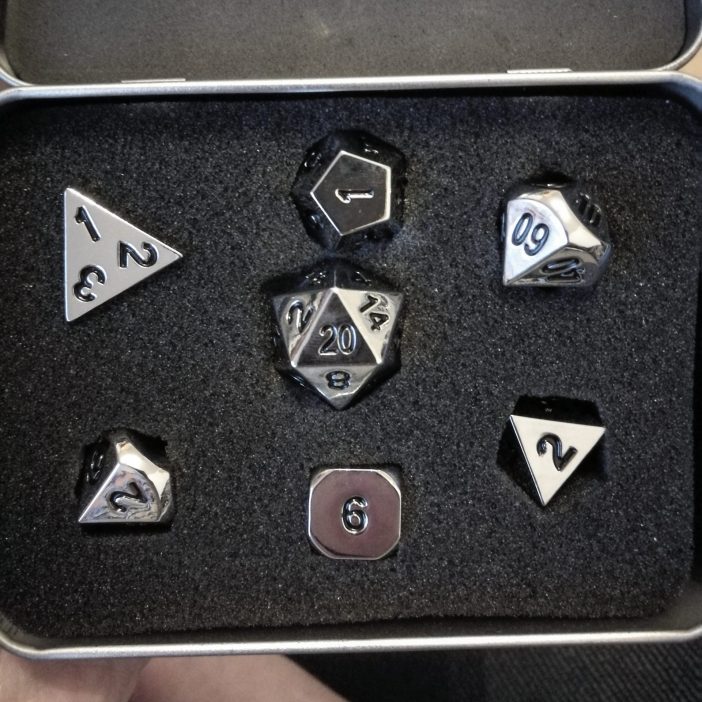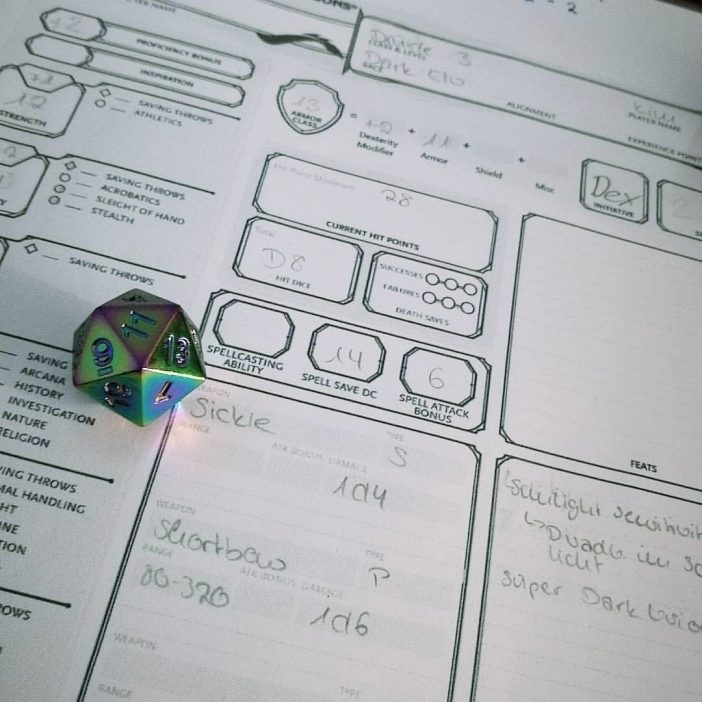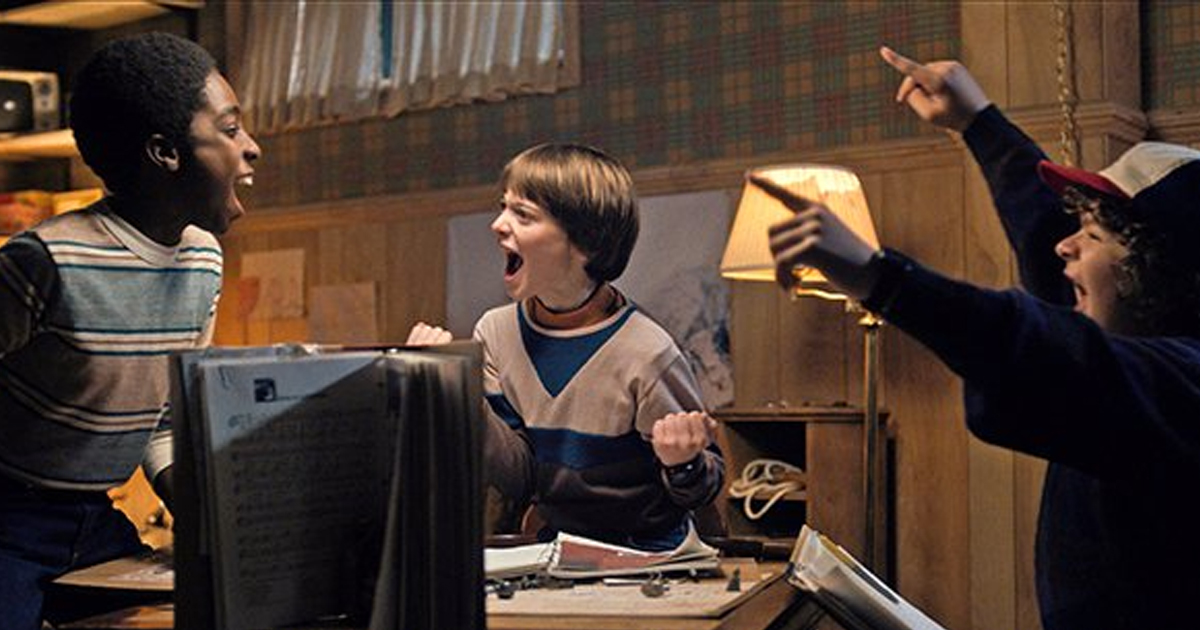Hi and welcome back!
As I mentioned in my last post, you’ll need just a few items for a quick start into the game. I thought a lot about how create this list, so you’ll be able to get all the necessary information you need.
Dungeons and Dragons can be easy to play… and it can also get very confusing. So let me give you some tips and tricks for as less problems as possible.
Your equipment
Dices
If you’re completely new to the game, you might not have all the dices you need. Typically, you play D&D with a set of seven different dices. The dices are called by the number of sides they have. There is a d4, d6, d8, d10, d12, d20 and a d100.
The most important one will be the d20. With this dice you decide most of the actions that are happening. If you don’t have one: Don’t worry. In most of the cases the DM is in possession of multiple sets. So just go and ask him.
Or you take a look at some online shops and order yourself some. The cost depends on what kind of dice you want to get.

Character Sheet
To play you will need a character. And to get an overview on your skills and stats, you will need a character sheet. There is a basic one, that Wizards of the Coast is sharing with you.
You can fill it out at the PC or just print it out and write your information down. But always remember: Your stats will change in the course of the game. I would recommend writing with a pencil, so you don’t make a mess when you need to correct something.
Tip from my side:
Use a brochure cover and a non-permanent marker. Within fights there are a lot of changes or notes you need to write down. If the change is done, you can easily erase that note.
Notebook
Get used to write down the information you as a player is getting. First of all, it prevents you from asking to many questions of what was happening before. But then you also know what information your character has. So when a team member is talking to a NPC (Non Playable Character) and you’re not there, you don’t need to write down information, as long as he is telling you that.
You won’t start metagaming at this point.
And that’s really important, because it can cost the fun-level of the game.
Players Handbook
Make sure your group has at least one Players Handbook at the table. If there are questions about a skill or something, you can take a quick look, before going on.
Also if you are unsure about a spellcasting ability or another attack… just take a look into the handbook.

Is there something more?
Yes.
I would recommend getting some snacks and something to drink. We love to have some sweets and vegetables with us. Normally we also meet up between 9 AM and 10 AM. One of the first things we do is to eat breakfast together, discussing the upcoming session and make the last points clear, until we start with a little recap from the last round.
If there is a fight coming up, we play with a board, covered in Plexiglas, where we draw our fighting-maps and place our figures. With this we can see how to move, plan some strategies, count the range to an enemy…
Well. It helps a lot. You can find a bunch of maps online, or just start to draw some by yourself. It’s really fun to think about an area to fight and bring it onto paper!
Last but not least:
Stay fair. I know. Sometimes it’s not easy to not metagame, but try to stay in character and try to make decisions for him. You’re playing the role of a rough rouge, who doesn’t care about other people? Then he would probably intimidate the farmer to give him his last food, just to survive, even if you won’t.
Or you know a more complex mechanic would be effective in that fight, but your character is in such a rage, that he won’t think about that and would just beat the s**t out of them.
Try to play it and make the game more intuitive with it. Give it those dramatic moments that make Dungeons and Dragons unforgettable!
Also try to remember: The DM will have the last word. So please don’t try to argue with him and prevent the game from going on. If you have something to criticize, do it after the game or within the break.
I think this is enough for the beginning. There is a lot you should care about, but I think these are the most basic things for playing.
Maybe there are some things you and your teammates are taking care of? Then you’re open to share it with us!
Until the next time:
Have fun!
Bye~




Took me a while to find the second post and I liked it very much. Valid point on the notebook, while I had one I didn’t always use it and if it wasn’t for our amazing dungeon master, some of the fun might have gotten lost. Looking forward to reading more!
Hey 🙂 It also took me a while, until I felt comfortable taken all the notes I need. One the one hand as a player and on the other as a character. But it’s always a nice help within the game!